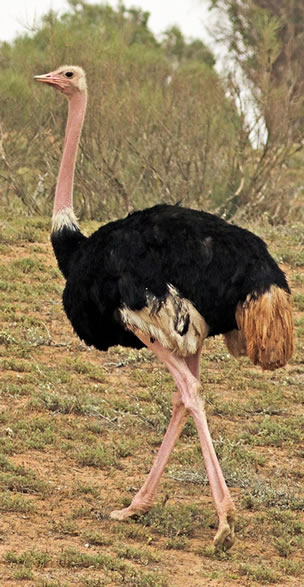Our History


VISION
To be Kenya's leading and unified voice in protecting and restoring Kenya’s natural heritage and building climate resilience. We will drive partnerships to restore ecosystems, support sustainable livelihoods, and drive conservation-driven development through strategic policy influence — securing resilience and prosperity for future generations.

MISSION
To unite and mobilize partners, members, and communities in protecting Kenya’s natural heritage for future generations and national pride by driving action, shaping policy, and strengthening sustainable livelihoods to ensure healthy ecosystems and thriving communities.

MANDATE
The Conservation Alliance of Kenya (CAK) is the unified voice for conservation in Kenya, leading efforts to protect and restore the country’s rich natural heritage — including terrestrial, marine, and freshwater ecosystems — while building climate resilience for future generations.
CAK brings together government, civil society, the private sector, and local communities to drive action and forge strategic partnerships that deliver real conservation impact. By uniting and empowering its members and partners through capacity building, technical support, and policy engagement, CAK ensures that conservation efforts strengthen local economies and improve livelihoods.
At the heart of CAK’s mandate is driving policy change to align conservation with Kenya’s Vision 2030, global sustainability commitments, and national development goals. CAK is positioning itself as a center of excellence for conservation leadership and innovation, shaping best practices across Kenya and East Africa.
CAK’s mission goes beyond protecting nature — it’s about creating a future where ecosystems thrive and communities prosper. With your support, CAK will scale up conservation impact, protect millions of hectares of critical ecosystems, and improve livelihoods in hundreds of communities. We will engage the private sector to unlock green financing and drive sustainable business opportunities while strengthening grassroots advocacy and community-led stewardship.
This is a defining moment — Kenya’s ecosystems and livelihoods depend on it. Act now to protect Kenya’s natural legacy for generations to come.

Core Values
Collaboration - Together, we are stronger.
We believe in the power of partnerships and collective action.
Integrity – Guided by transparency and accountability.
We uphold the highest standards of ethics, honesty, and responsibility in our work and committed to transparency in decision-making and accountable to our members, partners, and stakeholders.
Innovation – Driving creative solutions for a sustainable future.
We embrace new ideas, technologies, and approaches to tackle conservation challenges. We are adaptive and forward-thinking in the face of a changing environmental and social landscape.
Respect – Honoring people, nature, and culture.
We respect the rights, traditions, and knowledge of local communities. We value the diversity of ecosystems and people and strive to create inclusive and culturally sensitive conservation solutions.
Sustainability – Protecting today, securing tomorrow.
We are committed to solutions that balance environmental, social, and economic needs.
Leadership – Setting the standard for conservation excellence.
We lead by example, setting high standards for conservation and governance.
Impact – Measurable results that matter.
We are driven by outcomes and committed to delivering measurable and meaningful impact.

Background
Imagine a time when Kenya’s majestic wildlife faced an uncertain future. In the early 2010s, amid shrinking habitats and rampant poaching, a wave of change was on the horizon. The Wildlife Conservation and Management Act of 2013 signaled a new era, spotlighting the deep challenges at hand—from large-scale government infrastructure projects and a soaring global demand for ivory and rhino horn to inadequate law enforcement and escalating human-wildlife conflicts.
In response, the spirit of community and resilience took hold. Local landowners and communities rallied together to form the Kenya Wildlife Conservancies Association (KWCA), a grassroots initiative determined to protect their natural heritage. At the same time, conservation NGOs began to realize that their fragmented, short-term efforts were no match for the sweeping challenges they faced.
The spark that would change everything ignited in November 2013, when the Kenya Wildlife Service (KWS) brought together diverse stakeholders for a pivotal meeting. This gathering set the stage for the first Conservation NGOs conference, aptly titled “Together for Kenya’s Wildlife.” Held at the scenic Enashipai Lodge in Naivasha from January 26 to 28, 2015, the conference united over 100 passionate voices from civil society, government, and international organizations. Amid spirited discussions and shared aspirations, a clear vision emerged: Kenya needed a unified national platform to coordinate its conservation efforts. In that inspiring moment, the name “Conservation Alliance of Kenya (CAK)” was born.
Building on this momentum, CAK was formally launched on April 12, 2016, and on December 22, 2016, it was officially registered as a limited liability company with 30 organizations joining its ranks. With its charter calling for coordinated advocacy, standardized data sharing, strategic resource mobilization, and collaborative policy development, CAK transformed from a visionary idea into a vital platform. Today, it stands as a beacon of hope and collaboration—uniting diverse stakeholders to secure the long-term sustainability of Kenya’s irreplaceable wildlife heritage.

OUR VALUE PROPOSITION
We are uniquely positioned as the only entity representing various conservation organizations to provide our members with a common platform to communicate, exchange and share their expertise and experiences on the conservation of the environment and natural resources at county, national, regional and global levels.
As a membership organization, we:-
- + Committed to coordinating and strengthening the capacity of members through cross-learning opportunities, innovation, and knowledge sharing.
- + Shall enhance effective partnerships and collaboration with county and national government towards good governance and strike a balance between development and conservation.
- + Commit to providing solutions to threats and challenges affecting the conservation of the environment and natural resources such as laws and policies on ecosystem-based approach - connectivity and benefit-sharing.
OUR THEORY OF CHANGE
At CAK, we envision a future where people, nature, and the economy flourish. Our approach is built on the belief that a unified, robust alliance among conservation organizations in Kenya is key to achieving transformative conservation outcomes.
IF: Conservation organizations across Kenya unite to form a strong, cohesive alliance that amplifies their collective voice.
THAT: This alliance commits to:
- + Advocating for policies and legislation that favor conservation,
- + Fostering strategic partnerships and collaboration,
- + Enhancing the capacity of its members through effective knowledge management and information sharing
THEN: These combined efforts will boost conservation actions across the country by increasing organizational capacity, access to critical knowledge, and collaborative impact.
THUS: This enhanced conservation action will pave the way toward a future where people, nature, and the economy not only coexist but thrive together.
By strengthening its own capacity and financial stability to support its members, CAK aims to lead this unified, strategic effort, ultimately driving meaningful conservation progress throughout Kenya.
OUR FIVE-YEAR PLAN FOR IMPACT
Over the next five years we will focus on the following goals:
+ Strategic Advocacy and lobbying for favorable legislation addressing + Promote partnership, collaboration and stakeholder engagement for improved conservation action.
+ Build the capacity of members and other key stakeholders to improve conservation outcomes.
+ Promote knowledge creation and information sharing.
+ Establish CAK as a strong and sustainable organization


